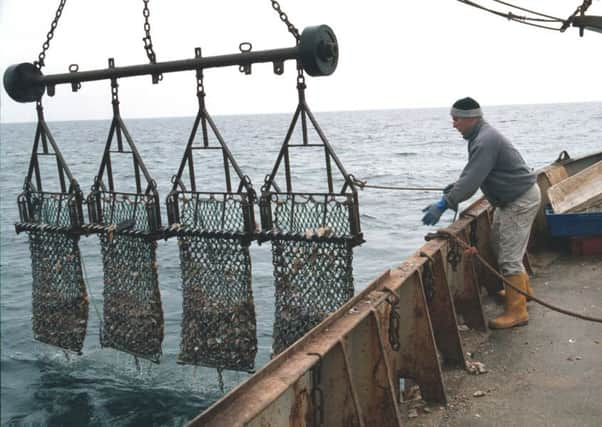Scallop dredging is sustainable and green industry


The stark truth is that this country’s highly regulated, carefully targeted scallop fishery has very little impact on sensitive areas of the seabed.
Depressingly, rather than ensuring they are well informed about scalloping, greens prefer to hide behind emotive and utterly misleading platitudes.
Advertisement
Hide AdAdvertisement
Hide AdFor example, we often hear consumers being urged only to buy scallops which have been hand-harvested by divers, the implication being that this a sustainable and worthy practice. Yet unlike dredging hand-harvesting is entirely unregulated, meaning we have no clear evidence of its impact on the long-term sustainability of stocks.
At the Scottish White Fish Producers Association, we deal in facts and here are a few that bust some of the myths about scallop fishing:
n UK scallops are recognised around the world for their quality and more than 60 per cent are exported to European countries, principally France, Spain and Italy.
n More than 98 per cent of scallops are caught by vessels using dredges, with fewer than 2 per cent harvested by divers, allowing the UK industry to meet demand that would otherwise be met by imports from the US and elsewhere.
n Dredging is tightly regulated and scallop fishermen, in common with other fishermen, work collaboratively with governments and NGOs to preserve the ecosystem while maintaining a profitable fishery – they have a strong and obvious interest in doing so.
n Scallops are usually found in sand and light gravel, not sensitive coral reefs, and scalloping takes place on a very small part of the seabed, with vessels successfully fishing the same area decade after decade
n The Shetland king scallop fishery has achieved Marine Stewardship Council status for sustainable management practices,
n The sector employs 600 people directly and 750 in processing jobs around the UK coastline, often in sparsely-populated coastal areas, and is worth £120 million a year.
Advertisement
Hide AdAdvertisement
Hide AdTo pick up on some of these themes, this summer the Scottish Government will introduce further measures for the king scallop industry, measures which the industry has been consulted on and which look likely to increase minimum landing size, restrict effort and impose new dredging limits.
Our members responded constructively to this consultation. Like sensible business people in any sector, they are in favour of measures which control effort in a way that allows for their investments to remain profitable. They more than anyone want their fishery to be regulated to achieve long-term environmental, social and economic sustainability. Without that, they would be out of work.
Similarly, the scallop industry has worked closely with the Scottish Government and non-governmental organisations to design management measures for the network of Marine Protected Areas introduced in Scottish territorial waters.
Working in partnership to maintain and rebuild healthy ecosystems is a priority for our fishermen. Sadly, these efforts are often ignored by greens because they do not fit in with the propaganda agenda. This also means the good work done by fishermen can remain hidden from public view.
Furthermore, as part of the European Commission funded GAP2 project, UK and French fishermen and their representatives have collaborated with national governments and NGOs such as EDF and WWF to develop a long-term management plan for the channel scallop fishery.
This involved fishermen forgoing valuable sea time to sit down with industry stakeholders to devise a roadmap towards long-term sustainability – a million miles from the stereotype of scallop fishermen who would tow their gear over anything and everything to line their pockets, but the reality nonetheless.
So the next time you hear about the evils of scallop dredging, stop to consider the facts.
The scallops landed into the UK by our hardworking fishermen deserve to be recognised for what they are, a world-class product caught by a fleet that is as committed to ensuring stocks remain sustainable as the greens sitting in their comfortable city centre offices planning their next PR campaign.
l Anne-Margaret Anderson is inshore & environmental policy co-ordinator for Scottish White Fish Producers Association www.swfpa.com